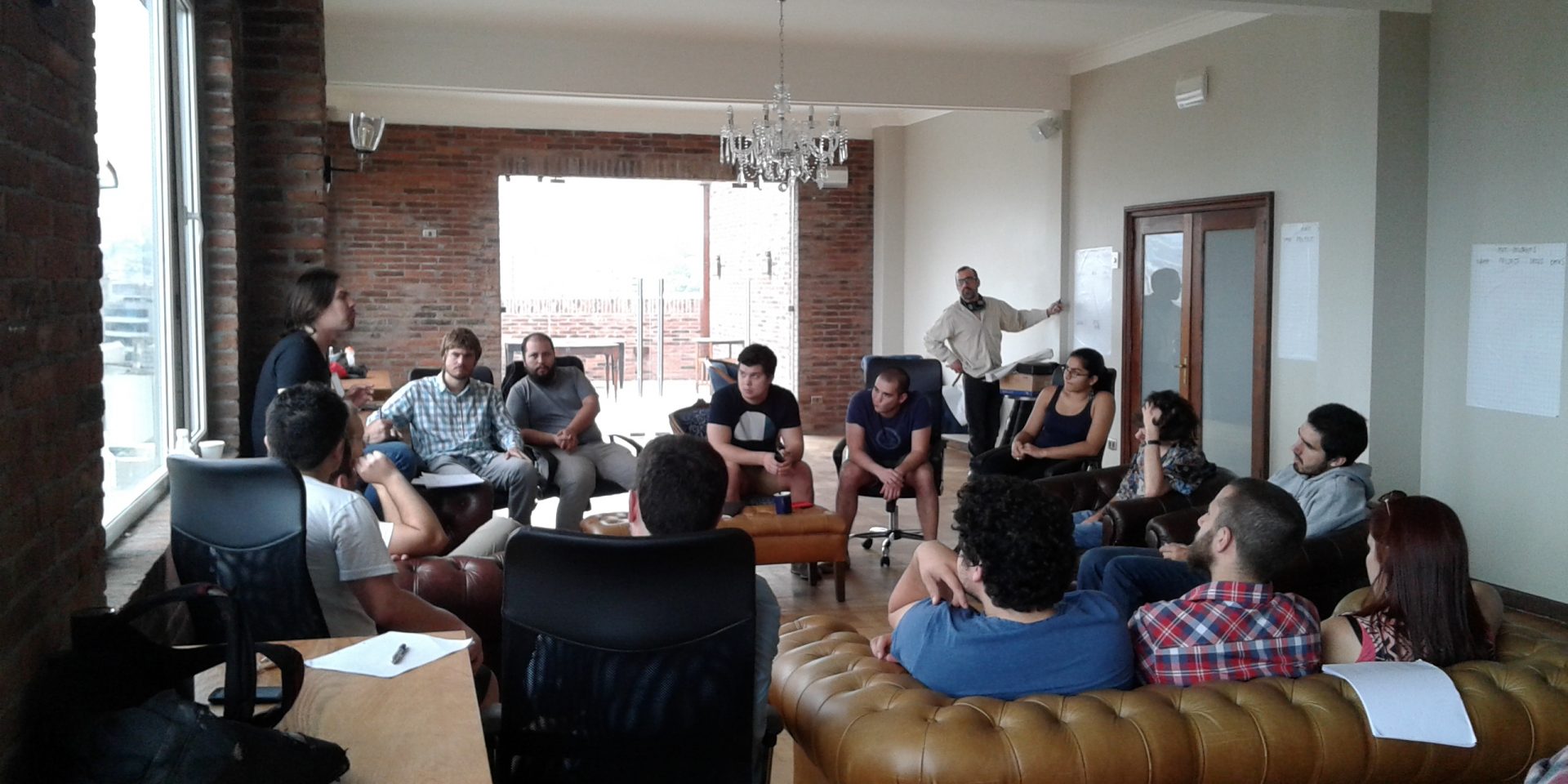

The work developed during this period covered topics such as immigration, art, trust and decision making from the perspective of neuroscience and social behavior.
Throughout January, students studying the Doctorate in Social Complexity Sciences (DCCS) conducted intensive research with their tutors in an innovative format that led to the meeting of projects and academics, but also generated new instances of participation such as Intelectual Speed Dating, Open Talks to the general public and a day of methodological and conceptual experimentation in a relaxed atmosphere in what its creator, Tamas David-Barrett, calls “Crazy Ideas Night”.
The result of this intensive month was presented at a closing day in which 9 students presented their lines of research, methodologies, hypotheses and preliminary results. In the case of Sebastián Díaz, Yerka Freire, María Paz Martínez, Gabriela Valdebenito and Carina Sturla, the work consisted in the development of their Research Units, which were evaluated by their teacher guides.
The event was attended by academics from the Faculty of Government, the Data Science Institute and the Center for Research in Social Complexity, including the researchers Isabel Behncke, Pablo Billeke and Francisco Zamorano. Jorge Fábrega, Director of the DCCS, made a positive assessment of the Research Camp, which culminated with the students Mauricio Aspé and María Teresa Barbato with the degree of Candidate to Doctor.
Cross-pollination and interdiscipline
Under the premise that Science is, in itself, a creative and collaborative exercise, researcher Tamas David-Barrett led the Intellectual Speed Dating, a weekly literature club in which students and professors presented papers in just 3 minutes, sitting in circles in the grass or meeting spaces. Next year the club will resume its appointments as prior to the CafeCICStos. You can review the articles presented here.